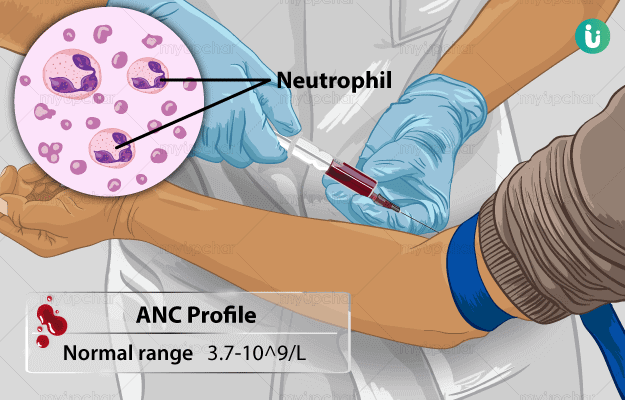What is an Absolute Neutrophil Count (ANC) test?
Neutrophils are components of white blood cells (WBCs), which help in fighting infections. Increased destruction or use of neutrophils during an active infection or underproduction of neutrophils due to physiological conditions can result in neutropenia (a medical condition characterised by a reduction in WBC count) and consequently a higher chance of infections.
An absolute neutrophil count test helps detect the total number of neutrophils present in the bloodstream in such conditions to determine the presence of neutropenia, It aids in the diagnosing infections, inflammation, and leukaemia and is also helpful in monitoring the patient’s immune system before, during and after treatment.






























